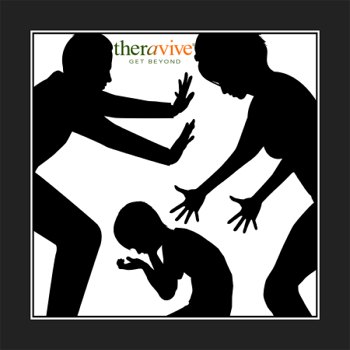
When human babies are born, they are totally helpless. The
babies need the parent for total survival. As the child begins to develop into a
toddler, preschooler, and an adolescent, the once helpless babies, are now
taking on an identity of themselves. As parents teach their children the
difference between right and wrong along with socially appropriate behavior,
discipline is often used. According to Merriam and Webster Online (2015), discipline
is the “control that is gained by requiring that rules or orders be obeyed and punishing
bad behavior.” There are parents who have children whether they are biological,
adopted, or foster, can misused and abuse the act of discipline. Discipline is
a viable and needed entity in the development of a children’s behavior. However
when discipline is taken too far, Child Protective Services become involved and
parents could be charged based on the findings of the investigation such as a
couple in Waterbury, CT.
George and Nancie Barnes of Waterbury, CT have been charged with
parental abuse to their five adopted children. The children ages range from
nine to eighteen. The discipline act that the Barnes is charges with is locking
the children up in the bathroom of extending periods of time and even months along
with having them to stand up the entire time (Polansky & Campbell, 2015).
Baby monitors were placed in the bathroom so the parents could view and see if
they were standing up. The only time they were not confined to the bathroom is
for school and to go to sleep. Officials became aware of the inappropriate
discipline by one of the five adopted children told their school resource
officer (Polansky & Campbell, 2015). The children have been removed from the
home and are currently with the Department of Family and Protective Services.
Types of Abuse
There are six types of abuse as defined by Child Welfare
Information Gateway (2014) which are physical abuse, neglect, sexual abuse/exploitation,
emotional abuse, parental substance abuse, and an abandonment. Physical abuse is defined as “any nonaccidental physical
injury to the child” and can include striking, kicking, burning, or biting the
child, or any action that results in a physical impairment of the child (Child
Welfare Information Gateway, 2014, p2).” Neglect is defined as “the failure of
a parent or other person with responsibility for the child to provide needed
food, clothing, shelter, medical care, or supervision to the degree that the
child’s health, safety, and well-being are threatened with harm (Child Welfare
Information Gateway, 2014, p2).” Sexual abuse falls under physical abuse;
however sexual abuse is very distinct. Sexual abuse and sexual exploitation
share the same category to include children in prostitution or participating in
child pornography.
Emotional abuse is defined as “injury to the
psychological capacity or emotional stability of the child as evidenced by an
observable or substantial change in behavior, emotional response, or cognition”
and injury as evidenced by “anxiety, depression, withdrawal, or aggressive
behavior (Child Welfare Information Gateway, 2014, p2).”
Parental substance abuse is defined as (1) prenatal
exposure of a child to harm due to the mother’s use of an illegal drug or other
substance; (2) manufacture of a controlled substance in the presence of a child
or on the premises occupied by a child; (3) allowing a child to be present
where the chemicals or equipment for the manufacture of controlled substances
are used or stored; and (4) selling, distributing, or giving drugs or alcohol
to a child (Child Welfare Information Gateway, 2014).
Abandonment is defined as “…parent’s identity or whereabouts
are unknown, the child has been left by the parent in circumstances in which
the child suffers serious harm, or the parent has failed to maintain contact
with the child or to provide reasonable support…(Child Welfare Information
Gateway, 2014, p2)”
Parenting Style & Its Impact
There are four types of parenting styles. Authoritative is a
healthy parenting style were the parent demonstrates balance and flexibility regarding
discipline. Authoritarian is an unhealthy parenting style that is believes in corporal
punishment. Neglectful is an unhealthy parenting style that simply does not
engaged with their children. Permissive parenting style is an unhealthy
parenting style that provides no structure and allows the children to do whatever
they want with no natural consequences.
Discipline techniques and parenting styles have a major
influence on child’s behavior and in later adulthood. Pederson & Fite
(2014) conducted a study regarding the symptoms of oppositional defiant
disorder which is a very common disorder and it’s relation to parenting styles.
The outcome of the study concluded that negative parenting styles influence the
symptoms of oppositional defiant disorder. In other words, the more ineffective
the parenting style the worse the degree of symptoms the child demonstrated. Taillieu
& Brownridge (2013) conducted a study regarding high and low inductive parents.
The findings were high inductive parents that used corporal punishment or
psychological aggression negatively impact children which manifested itself in emotional
adjustment problems early adulthood.
Conclusion
There
a four types of parenting styles. The authoritarian parenting style uses
corporal punishment or
psychological aggression in correcting bad behavior. The form of discipline falls
under The Child
Welfare Gateway definition of physical and emotional abuse. Parents are receiving
legal sdf charges for using that type of discipline as demonstrated by George
and Nancie Barnes of Waterbury,
CT for locking children in the bathroom when they misbehaved. Corporal punishment
or psychological aggression has a long term effect on child which hinders them
emotionally. The best parenting is have an authoritative parenting style with
flexible disciplinary techniques. Parenting in which the format of the discipline
was educated to the child, the child was more receptive to negative
consequences he or she engaged in negative behaviors (Davidov & Grusec 2012).
References
Davidov, M. m., Grusec, J. E., & Wolfe, J. L. (2012). Mothers' Knowledge of Their Children's Evaluations of Discipline: The Role of Type of Discipline and Misdeed, and Parenting
Practices. Merrill-Palmer Quarterly, 58(3), 314-340.Merriam-Webster Online. (2015). http://www.merriam-webster.com/dictionary/discipline
Polansky, R. & Campbell, M. (2015) Protective order
issued against parents accused of locking children in bathroom. CNN. Retrieved
from http://www.wfsb.com/story/31088903/parents-accused-of-forcing-children-to-stay-in-bathroom-set-to-face-a-judge
Pederson, C.A. & Fite, P.J. (2014). The impact of
parenting on the association between child aggression subtypes and oppsotional
defiant disorder symptoms. Child
Psychiatry Hum Dev, (45), 725 – 735.
Taillieu, T. u., & Brownridge, D. (2013). Aggressive
Parental Discipline Experienced in Childhood and Internalizing Problems in
Early Adulthood. Journal Of Family
Violence, 28(5),445 -458.
About the Author

Henry M. Pittman
, MAHenry M. Pittman came into the field of counseling through substance use disorders in the fall of 1997. He was a substance abuse tech at a hospital in Houston, TX and what he saw motivated him to take all the counseling hours needed to become a substance abuse counselor in 1998. Since then he has pursed the required education and knowledge to become a master level counselor and therapist.
Office Location:
7807 Long Point Dr, Ste 215
Houston, Texas
77055
United States
Phone: 800-419-2568
Contact Henry M. Pittman
Professional Website:
www.therapeuticallc.com